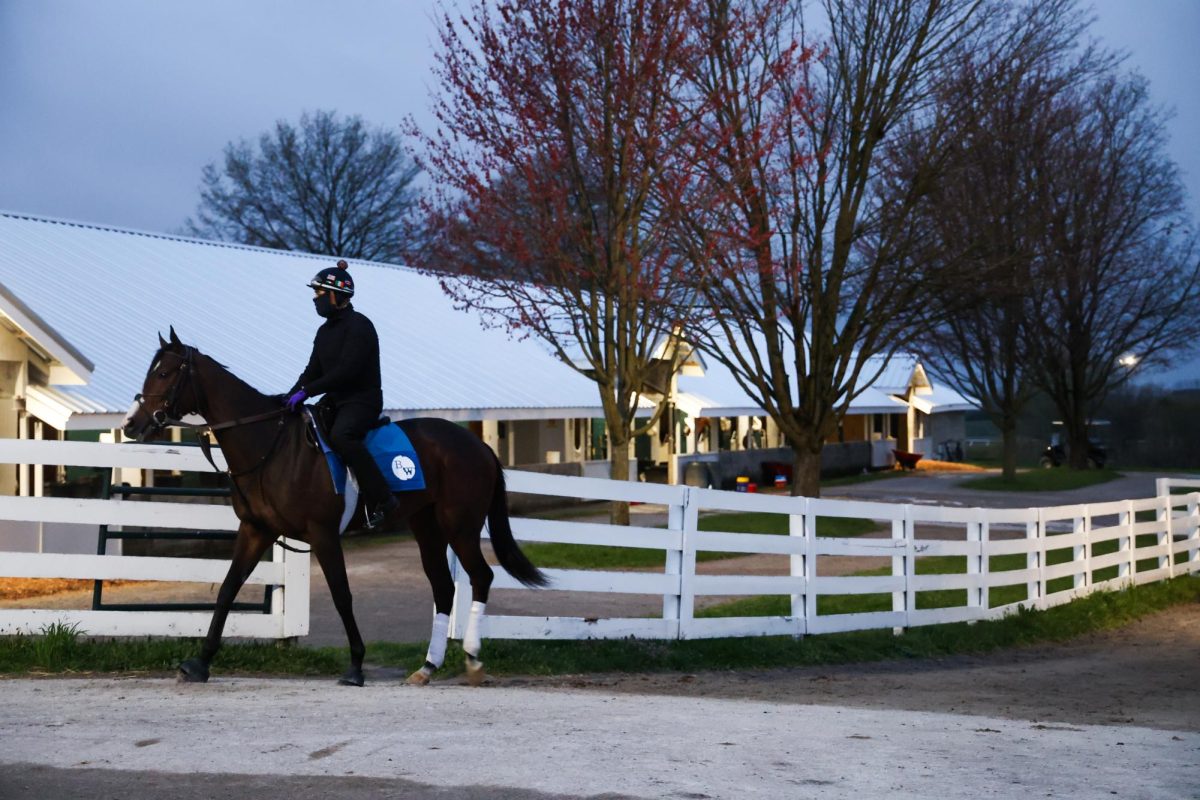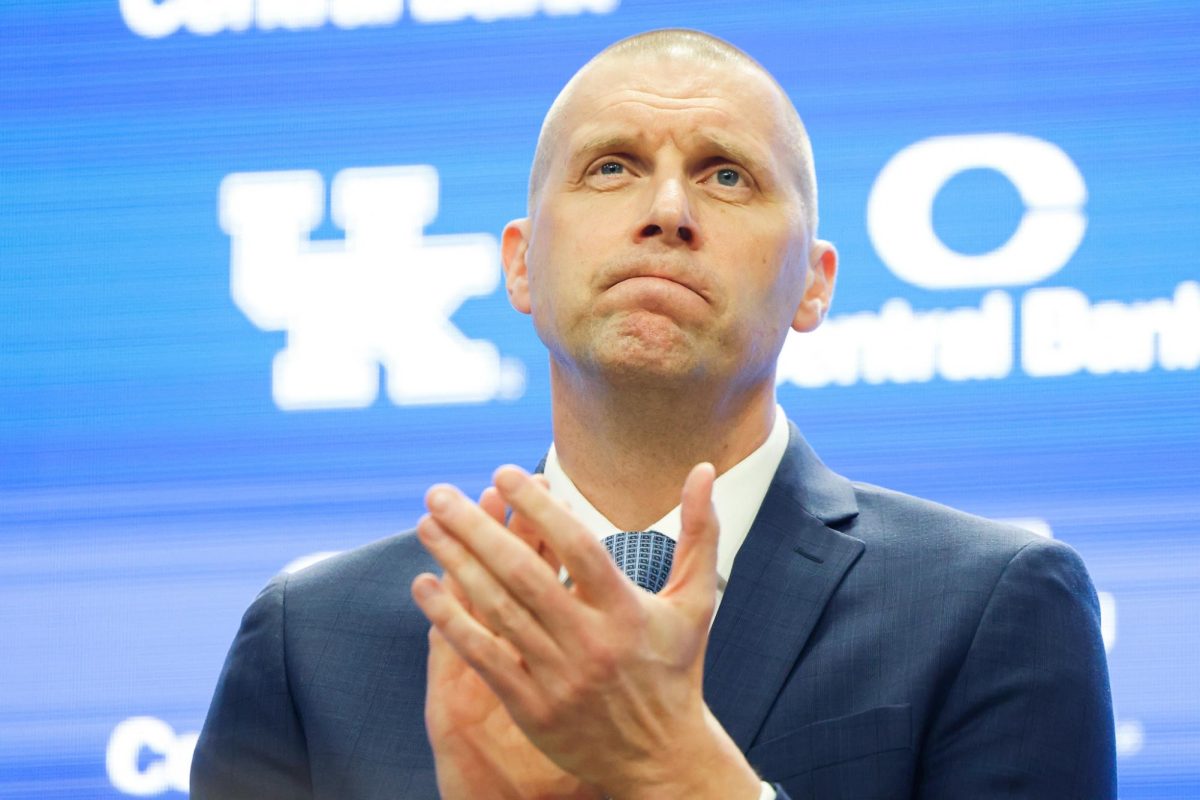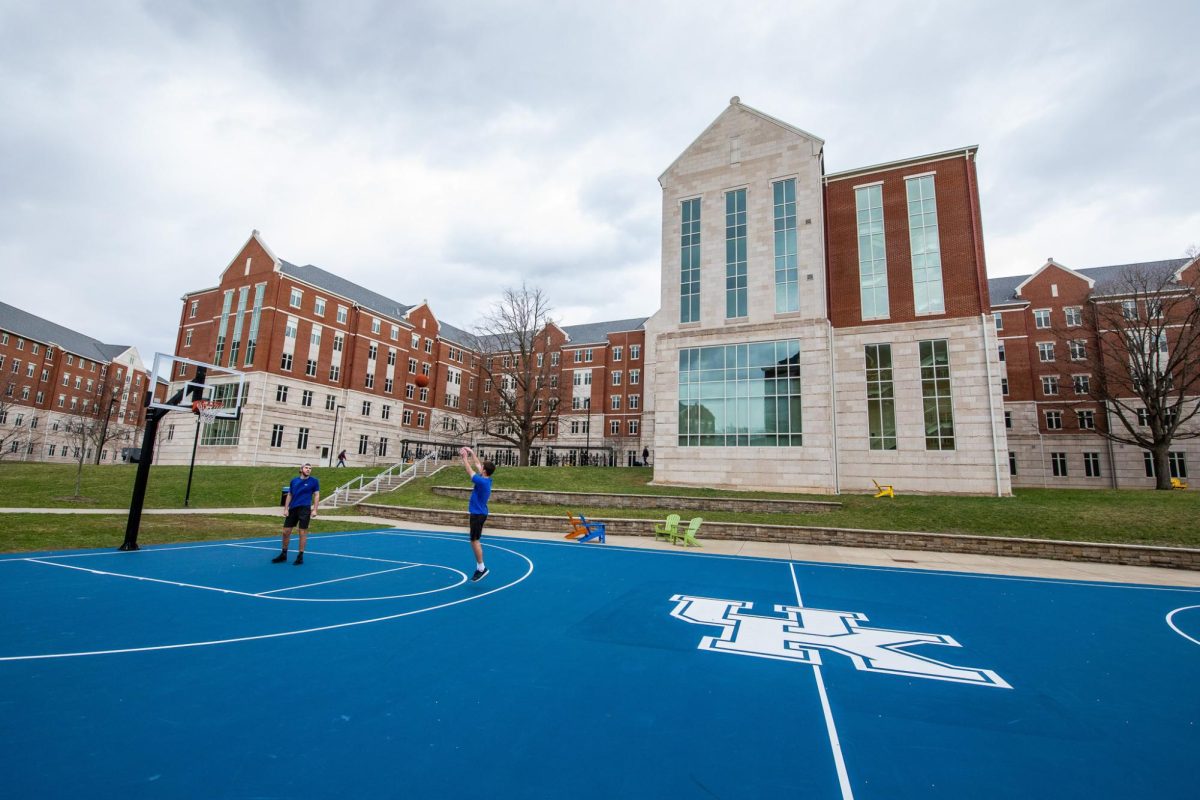Israeli-Palestinian conflict needs dialogue
December 3, 2009
“Coal†is the dirtiest four-letter word on campus, and the (attempted) tobacco ban has members of the UK community burning with anger, but the flames of yet another controversy refuses to die.
More than a month after former Israeli Prime Minister Ehud Olmert spoke at the Singletary Center for the Arts, his appearance continues to spark debate. Some are incensed by the stark difference between Olmert’s speaking fee and the seemingly minimal amount that UK will pay Palestinian peace activist and legislator Hanan Ashrawi to speak in March 2010. Others are irate that Olmert was allowed to speak at UK at all.
But amidst all the criticism, a central issue regarding Middle East peace talks has fallen to the wayside. Palestinian advocates declare they want peace, but do their actions reflect that claim?
As soon as Olmert stepped toward the Singletary Center stage podium, Palestinian protestors began angrily shouting him down. Cries of “shame on you†and “liar†drowned out Olmert for several minutes before order was restored after many audience members had walked out of the auditorium. Even after Olmert had gained a relatively cooperative crowd, he was continually interrupted before finishing his speech.
Palestinian supporters did not give Olmert a chance. They demonstrated a predisposition toward denying the credibility of anything he said. According to an Oct. 15 Kernel article, a Palestinian protestor in reference to Olmert sums up the collective attitude: “Everything that he says is just wrong.â€
Closed-mindedness is not going to solve anything. Understandably, Palestinian supporters will never forgive Olmert for Israel’s deadly attacks on Gaza in January, but did disrupting his speech accomplish anything positive for the Palestinian cause? Do you imagine that many individuals who had come to Olmert’s speech with a neutral or pro-Israeli bent were won over to the Palestinian perspective by angry yelling?
If either side in the Israeli-Palestinian conflict continues claiming it wants peace, it must engage in civilized dialogue rather than assuming that whatever the opposing side says will be offensive, because mutual understanding is impossible unless both sides listen patiently.
Earlier this year at a different southeastern university, I attended another lecture concerning the Palestinian-Israeli conflict, presented by an Arabic language instructor whose parents were Palestinian refugees.
The Arabic language instructor neutralized her potentially-biased audience by pointing out that Palestine’s struggle for independence from Israel is not purely religious. Israel’s citizens include Muslims, Christians and atheists, as well as Jews. Remember this point when Hanan Ashrawi, a professing Christian, visits UK.
The Arabic language instructor proceeded to present information from both sides in offering a comprehensive history of modern Israel’s founding and the tension between Palestinians and Israelis, including a reference to the Balfour Declaration’s promise “that nothing shall be done which may prejudice the civil and religious rights of existing non-Jewish communities in Palestine.â€
To provide a fuller perspective in finishing her presentation, the Arabic language instructor invited an Israeli student to assist her in answering questions from the audience. Despite opposing backgrounds, the two shared the stage harmoniously. Even when they disagreed on several historical details, they gracefully negotiated to reach a point of closure.
Although giving a Middle East lecture as a traditionally dressed Arab woman in a small, conservative southern town was undoubtedly intimidating, the Arabic language instructor made a convincing case for an independent Palestinian state. I left her lecture with a new appreciation for the Palestinian cause and was amazed by her fair-minded approach, an outstanding example of how to reach agreement on such a heated topic.
I am not asking Palestinians to sit idly by while Israelis make speeches. If both Palestinian supporters and Israelis engage in patient, respectful dialogue, peace is a realistic goal. And peace is something we all could be thankful for.




























































































































































